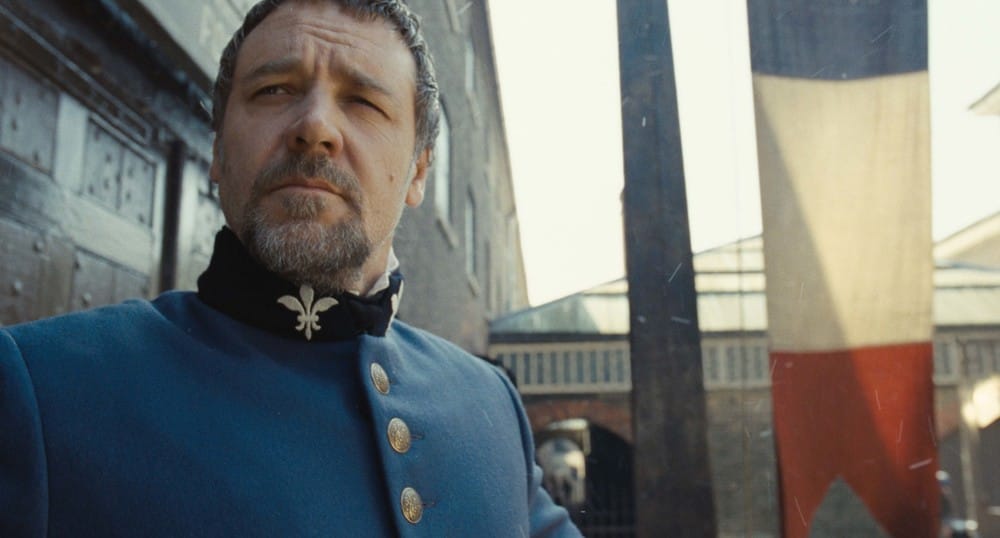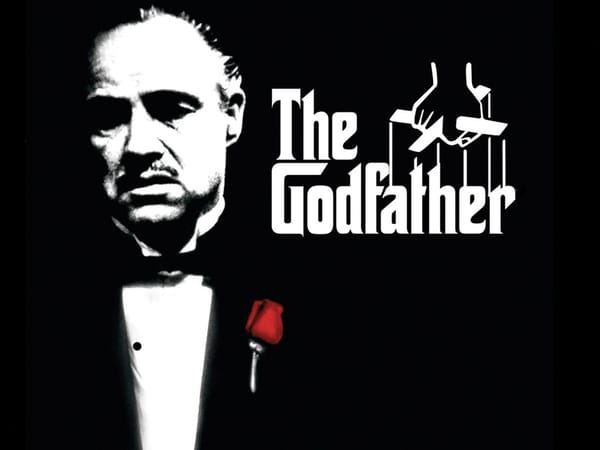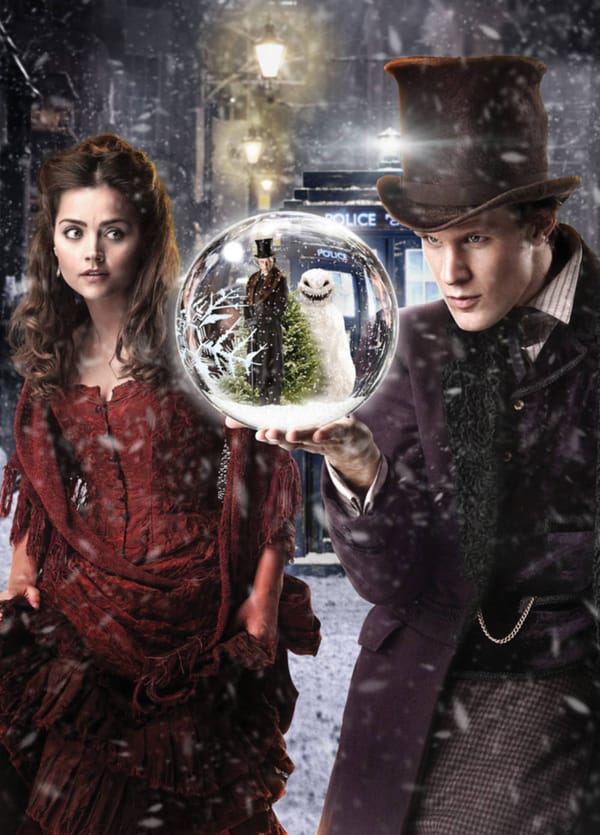They dreamed a dream: an IMAX experience
Les Misérables gets five stars from John Park

The BFI IMAX is a strange and wonderful place. Boasting its “biggest screen in the UK,” it lives up to its reputation in giving you a blistering headache should you sit too far forward, or a set of splittingly painful eardrums should you sit too close to the sides where the massive speakers are located. So the lesson here is this: sit as far back as possible – you’ll still see everything. The screen is really that big. And of course, centre seats are recommended. As soon as the adverts go full-size, you almost feel the words and numbers come out towards the audience. There is hardly any need for a 3D conversion it seems, as everything feels so close and awe-inspiring in the first place. Adding an extra dimension and an extra pair of glasses would almost certainly have everyone crawling to their exits.
A certain level of hilarity also ensues with a film like Tom Hooper’s latest, Les Misérables, a film adaptation of the worldwide smash-hit musical that’s been going strong ever since its debut in 1986. During his many, many musical sequences, especially ones involving solos with his actors, Hooper is a big fan of taking their close-ups, and using as few takes as possible, focusing solely on their faces. On the IMAX screen, the actors are placed under a microscope. Ever wondered how many freckles Eddie Redmayne has on his face? Or how about the number of wrinkles on Hugh Jackman’s face? Or perhaps the skin tone of Anne Hathaway’s? All becomes (far too) clear. It’s not exactly a distraction by any means, but an observation that cannot go unnoticed.
That Hooper doesn’t hold a thing back further benefits from the IMAX treatment. As prisoners in 1815 France are forced into physical labour, there are waves crashing in around them, along with the thunderous opening orchestral score, a mix that generates nothing but excitement for what lays ahead. Here is where we meet Jean Valjean (Jackman) a thief who stole a loaf of bread – a crime for which he’s served 19 years – 5 for the stealing, the rest for his numerous failed escapes. He is finally released on parole, with Inspector Javert (Crowe) reminding him of his condition and status. Valjean has forever been marked as a convict, and will remain as such for as long as he lives.
But Valjean decides to reinvent himself, with some very touching help from a kind-hearted priest (Colm Wilkinson in his mighty fine cameo), breaking his parole, and disappearing, creating a new identity for himself. The time fast-forwards eight years, and he’s now a well-off mayor and factory owner, under an alias. It is here he encounters Fantine (Anne Hathaway), a hard-working single mother forced into prostitution to provide for her illegitimate daughter. Promising the dying mother to take care of her vulnerable child Cosette (the pitch perfect Isabelle Allen), Valjean is once again forced to go on the run once the persistent Javert finally catches up with him.
We get another time-jump: this one of nine years. Fantine’s daughter Cosette has grown up now (to Seyfried), and becomes the subject of passionate desire for Marius (Redmayne), an idealistic student revolutionary planning a dangerous demonstration on the streets of Paris. He too, is the subject of desire for Eponine (Barks).
It has a lot to juggle: plenty of meaty characters and decades of events and themes all expressed through music and the film’s most unique element, the live-singing of its cast, works massively to its benefit. For the sharply tuned musicians amongst the audience, a certain bum notes will most certainly be evident, most likely from a certain Aussie Gladiator whose smooth voice is more suited for singing the blues rather than an intense solo (‘Stars’). And it may be a little awkward at times to hear verbal dialogue given a musical treatment.
But oh the power and emotion it adds to the narrative is quite simply unmatchable to anything we have ever seen. Take Hathaway’s solo, for example. Forget about Susan Boyle and how she blew away everyone during her talent audition. Here, Fantine is abruised and beaten woman, having reached the lowest of the low, singing her guts out in Hathaway’s heart-wrenchingly beautiful rendition of ‘I Dreamed a Dream’. You may not like the song – but seeing Hathaway (a lock for the Best Supporting Actress Oscar) carry the song throughout a single, intimate close-up shot is a hauntingly memorable scene.
The closest thing we get to a love triangle is also interestingly explored here; with Seyfried proving she can sing a lot more than her ABBA repertoire, comfortably reaching those top notes in her many duets and trios, Redmayne has an incredible voice to show off, and once you can look past how the actor shakes his face intensely whenever he’s trying to hold on to a note (unintentionally hilarious, this), be blown away as he performs ‘Empty Chairs and Empty Tables’. Barks, who had previously played the same role on stage before, is also excellent in her film debut, and her big moment comes in ‘On My Own’ in which she despairs over her secret crush on Marius.
Jackman, previously trained in the musical theatre, takes on his two challenging solos (‘Who Am I’ and ‘Bring Him Home’) with gusto and utmost intensity for his character – he has fight left in him even when the universe seems to be against him, he has compassion for the poor, he has mercy, he has grief, he has guilt, and Jackman, in a single performance, sweepingly embodies all of these characteristics, most impressively even whilst he’s singing a set of difficult tunes.
And of course, the revolution – you know these students don’t stand a chance against the well-orgainsed military, but there is something stirring about their cause their firm beliefs. As they sing their hearts out with ‘Red and Black’ and ‘Do You Hear the People Sing?’ the battlelines are drawn, and subsequent violence ensues, ending in shocking tragedy. The scale remains relatively small, staying true to the stage adaptation, and feels more intimate because of it.
Without an intermission to wipe your tears away, bounce back from all the depressing drama, the 157-minute running time can be a challenge to sit through. But thank heavens for the Thenadiers (Cohen, Carter), the evil, conning innkeepers who act as “guardians” to little Cosette. Cohen and Carter are there for the comedic purposes only, and it’s sure a welcome addition. Their intermittent appearances add some priceless moments where we can forget about all the injustices in the world, and have a laugh as this outrageous couple go about their business singing ‘Master of the House’. Cohen and Carter do what they normally do best, providing plenty of wacky comic relief into a plot that really needs it.
There won’t be a dry pair of eyes in the house by the time we get to hear the rousing finale, as a magnificent musical comes to a close, one with a unique approach that will be remembered for years to come. Bravo Tom Hooper, for thinking that live-singing would be a good idea, and a special round of applause to everyone in the cast for making it work. As everyone comes together to sing the biggest song of the musical, ‘One Day More’, there isn’t a better representation of what excellent teamwork can really achieve.








